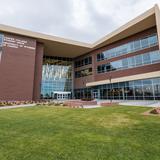School Highlights
National American University-Rapid City serves 1,876 students (16% of students are full-time).
The college's student:teacher ratio of 8:1 is lower than the state community college average of 12:1.
Minority enrollment is 58% of the student body (majority Black), which is more than the state average of 25%.
Quick Stats (2025)
- Enrollment: 1,876 students
- Private-state tuition: $13,287
- Student:teacher ratio: 8:1
- Minority enrollment: 58%
- Source: Integrated Postsecondary Education Data System (IPEDS)
Top Rankings
National American University-Rapid City ranks among the top 20% of public schools in South Dakota for:
Category
Attribute
Diversity
School Overview
The teacher population of 240 teachers has stayed relatively flat over five years.
National American University-Rapid City
(SD) Community College Avg.
Carnegie Classification
Doctoral/Professional Universities
Doctoral/Professional Universities
Institution Level
Four or more years
At least 2 but less than 4 years
Institution Control
Private for-profit
Public
Total Faculty
240 staff
208 staff
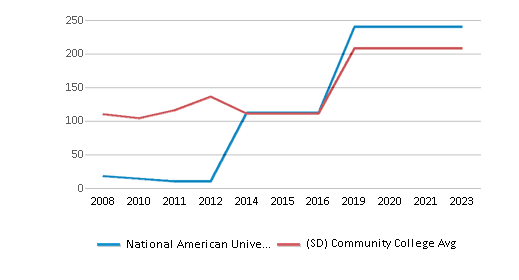
Student Body
The student population of National American University-Rapid City has grown by 20% over five years.
The student:teacher ratio of 8:1 has increased from 6:1 over five years.
The National American University-Rapid City diversity score of 0.73 is more than the state average of 0.43. The school's diversity has grown by 11% over five years.
Total Enrollment
1,876 students
1,407 students
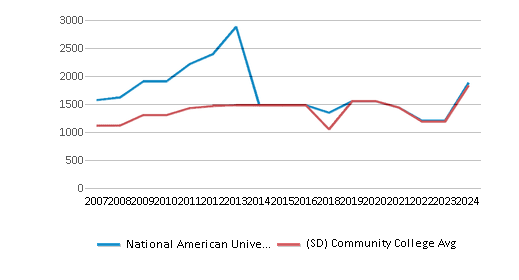
Student : Teacher Ratio
8:1
12:1
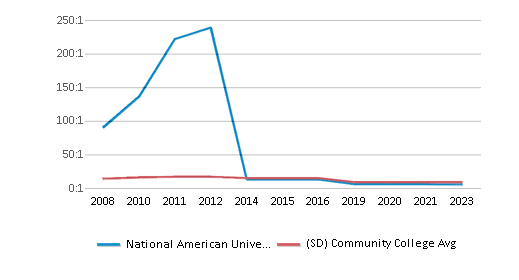
# Full-Time Students
295 students
295 students
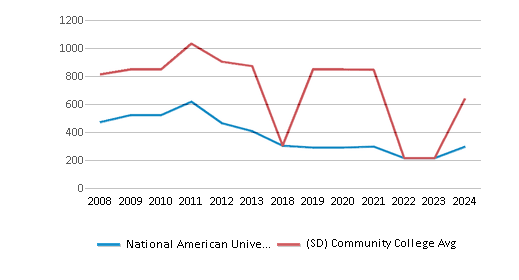
# Part-Time Students
1,581 students
1,026 students
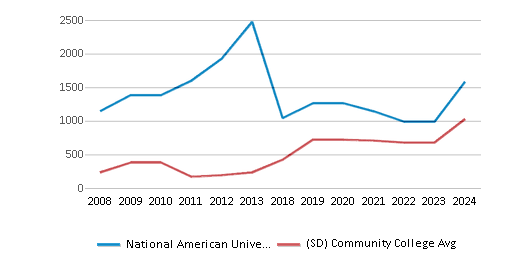
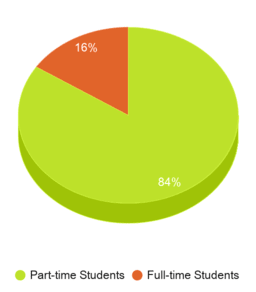
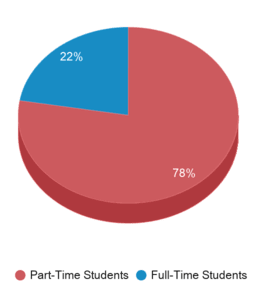
# Enrollment Undergraduate
155 students
183 students
# Full-Time Undergraduate Students
160 students
160 students
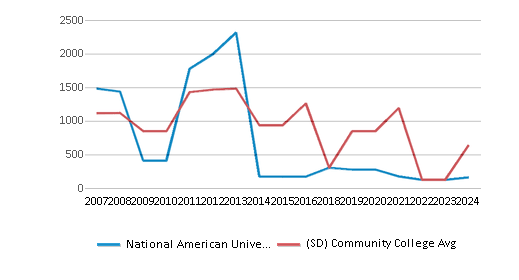
# Full-Time Graduate Students
135 students
135 students
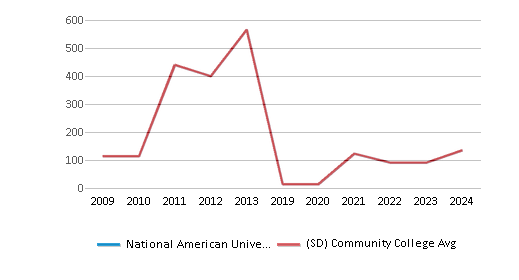
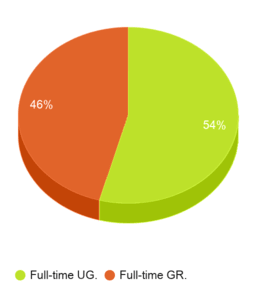
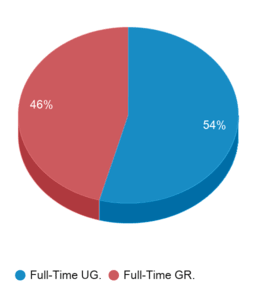
# Part-Time Undergraduate Students
1,399 students
1,026 students
# Part-Time Graduate Students
182 students
182 students
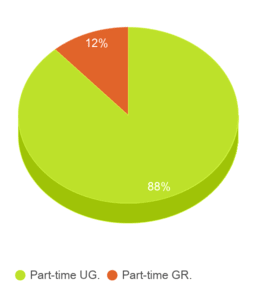
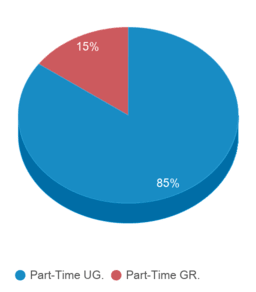
Total Dormitory Capacity
n/a
n/a
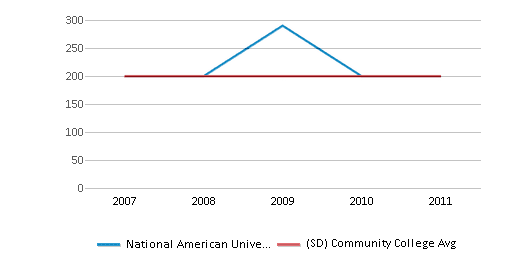
% American Indian/Alaskan
2%
3%
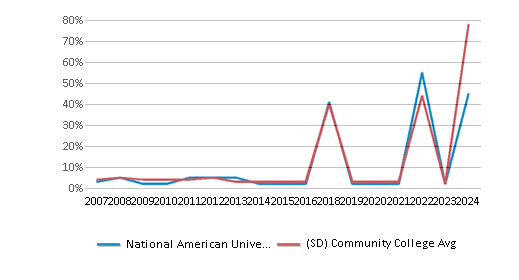
% Asian
2%
2%
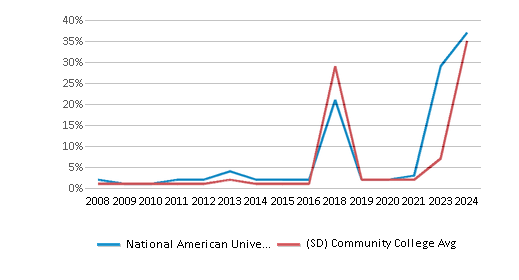
% Hispanic
15%
5%
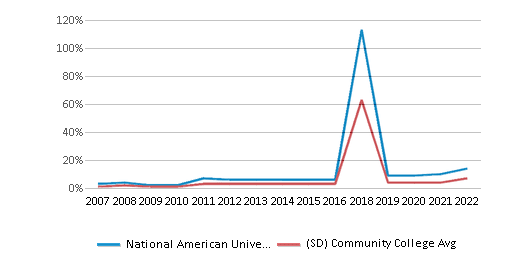
% Black
26%
7%
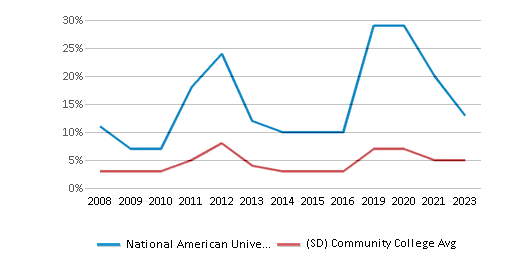
% White
42%
75%
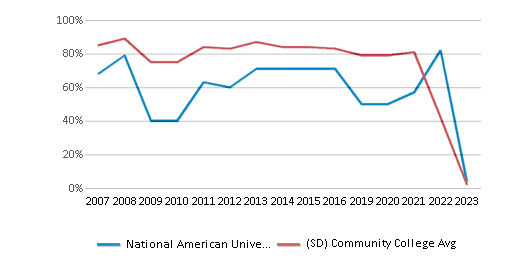
% Hawaiian
1%
2%
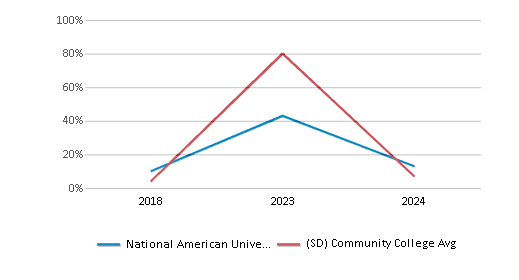
% Two or more races
4%
2%
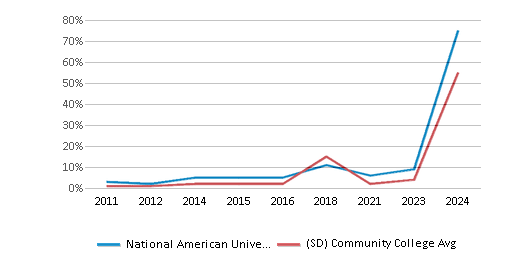
% Non Resident races
n/a
n/a
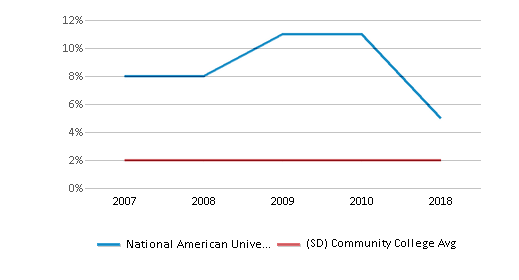
% Unknown races
7%
4%
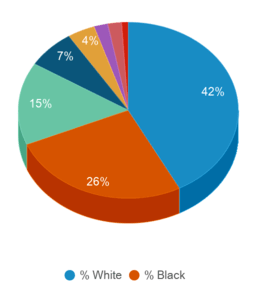
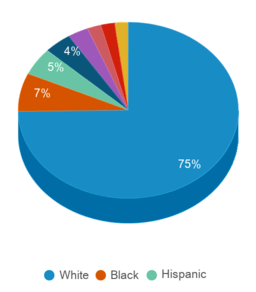
Diversity Score
0.73
0.43
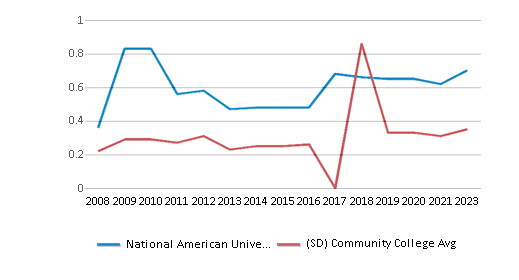
College Completion Rate (Students who graduate in less than 4 years)
n/a
0.5843%
College Completion Rate (Students who graduate in 4 years or more than 4 years)
0.3333%
0.3333%
Average Graduate Earnings (10 Years)
$41,200
$38,900
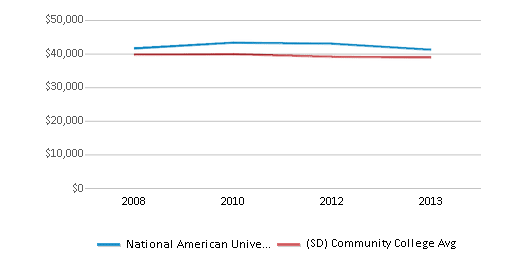
Tuition and Acceptance Rate
The private state tuition of $13,287 is equal to the state average of $13,287. The private state tuition has declined by 11% over four years.
Private State Tuition Fees
$13,287
$13,287
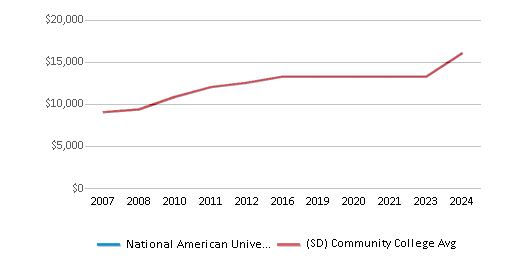
% Students Receiving Some Financial Aid
50%
85%
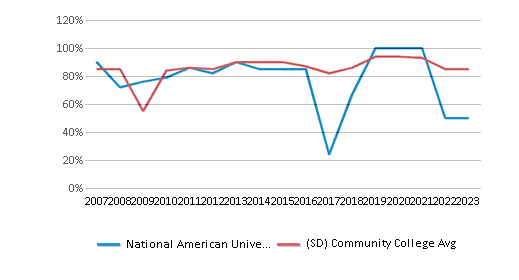
Median Debt for Graduates
$24,384
$12,000
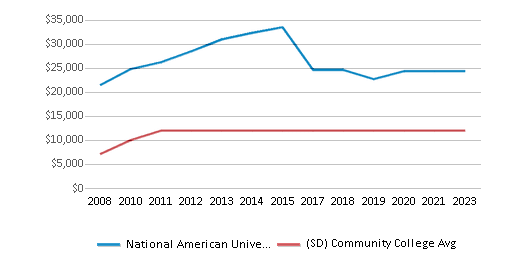
Median Debt for Dropouts
$12,497
$5,500
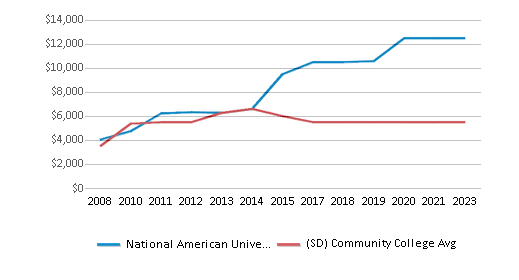
Acceptance Rate
n/a
100%
Source: 2024 (or latest year available) Integrated Postsecondary Education Data System (IPEDS)
Frequently Asked Questions
How much does National American University-Rapid City cost?
National American University-Rapid City's private state tuition is approximately $13,287.
What schools are National American University-Rapid City often compared to?
National American University-Rapid Cityis often viewed alongside schools like Western Dakota Technical College by visitors of our site.
What is National American University-Rapid City's ranking?
National American University-Rapid City ranks among the top 20% of community college in South Dakota for: Diversity in US community colleges.
Recent Articles

Obtaining Your Bachelor's Degree at a Community College
Explore the evolving landscape of community colleges offering bachelor's degrees, addressing affordability, accessibility, and workforce needs.

A to Z of Community College Certificates and Courses
From business and healthcare to technology and skilled trades, the article showcases the breadth of options available to students seeking to enhance their knowledge, develop new skills, or pursue career advancement.

What is a Community College?
This comprehensive guide explains what a community college is, its history, and its role in higher education. It covers the types of programs offered, differences from four-year colleges, benefits of attending, and important considerations for prospective students, providing valuable insights for those exploring educational options.

